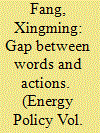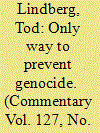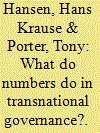|
|
|
Sort Order |
|
|
|
Items / Page
|
|
|
|
|
|
|
| Srl | Item |
| 1 |
ID:
175911


|
|
|
|
|
| Summary/Abstract |
With the increasing concern about energy sustainable policies, the words (willingness) and actions (behavior) of residents to support the renewable energy development have attracted lots of attention. However, most current studies focused on the willingness or behavior separately, ignoring the consistency between them. Given the wide gap between consumers' actual behavior and their willingness to support renewable energy found by a national energy survey in 2016, this paper aims to empirically explore the factors influencing the consistency between the willingness and behavior of Chinese residents through a bivariate-probit model. The empirical results indicate that socio-economic factors, socio-demographic factors and subjective factors have significant influences on residents’ consistency to support renewable energy development. Among them, subjective factors play the most important role. When the full sample is divided into a rural group and an urban group, it shows that income, education and energy supply satisfaction have more impacts on rural residents, while environmental concern and carbon emission knowledge affect urban residents by a larger magnitude. This paper provides important policy implications on how to guide residents willing to support renewable energy to take real actions in their life.
|
|
|
|
|
|
|
|
|
|
|
|
|
|
|
|
| 2 |
ID:
086876


|
|
|
|
|
| Publication |
2009.
|
| Summary/Abstract |
Have you ever found yourself in the position of asking, on your own behalf or on behalf of others, how many or precisely which people it would be useful to kill in order to secure a benefit for yourself or your cause? And just how to do it? No? Others have. Their answers have ranged from Cain's original "Abel, with my bare hands" to Hitler's "all the Jews, mainly by gas," and the widespread Hutu view in the Rwanda of 1994, "the Tutsis, with machetes." The question burns today for the government of Sudan and in the Congo.
|
|
|
|
|
|
|
|
|
|
|
|
|
|
|
|
| 3 |
ID:
117000


|
|
|
|
|
| Publication |
2012.
|
| Summary/Abstract |
We conducted surveys in 19 villages on the Qinghai-Tibet plateau to explore the social and ecological effects of household biomass utilization and local people's willingness to use clean energy. Results showed that biomass was commonly used on this plateau. Dung combustion generated heavy indoor smoke in pastoral regions. Women were main dung collectors, who spent 1.8 h per day on dung collection. Crop residues and firewood were mainly collected by adults. Most respondents would like to rest while few chose to entertain or study when the time for biomass collection was saved. Tree numbers decreased in agricultural regions and grasslands deteriorated in pastoral regions recently according to most respondents. There were significant differences in the willingness to use modern energy, but no significant difference in the willingness to use clean energy among households from regions with different livelihoods. Almost all the respondents would like to use clean energy when there was no economic constraint but paid no attention to the environmental impact of fuel choice. Livelihood and region were main determinants in modern energy utilization, and energy price was the main determinant of fuel choice. Future energy development should focus on finding new ways to utilize biomass and exploring renewable energy.
|
|
|
|
|
|
|
|
|
|
|
|
|
|
|
|
| 4 |
ID:
130913


|
|
|
|
|
| Publication |
2012.
|
| Summary/Abstract |
This study examines how numbers in transnational governance constitute actors, objects, and relationships, including relationships of power. We review the existing literatures on numbers for insights relevant to their role in transnational governance, including the ontology of numbers, the history of numbers and their role in governance. On this basis, we set out the main distinctive ways that numbers are implicated in transnational governance. We conclude that studies of transnational governance would benefit from paying more attention to the much overlooked performative role of numbers in governance processes. Numbers have properties that differ from words, and shifts from one to the other in governance, for instance in the displacement of laws or norms with risk models or rankings based on numbers, have particular effects, including political effects on states, firms, individuals, and other actors and institutions.
|
|
|
|
|
|
|
|
|
|
|
|
|
|
|
|
|
|
|
|
|